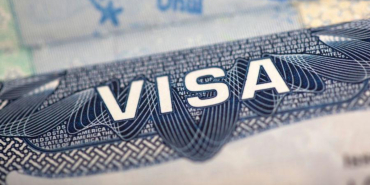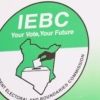US Government Suspends Visa Interviews for Foreign Students

US immigration policies are facing heightened scrutiny following a series of enforcement actions by the Trump administration.
These actions, which include halting student visa interviews, conducting unexpected immigration detentions, and implementing stringent deportation measures, have ignited widespread debate over civil rights, international diplomacy, and potential humanitarian consequences. The immediate suspension of student visa interviews at US embassies worldwide, directed by Secretary of State Marco Rubio, is among the most impactful recent developments. This directive effectively halts new applications as officials evaluate the implementation of stricter vetting procedures, particularly focusing on applicants’ social media histories.
This move underscores the administration’s broader security strategy through extensive data analysis, though critics argue it disproportionately burdens international students seeking educational opportunities in the United States.
Deportation processes have encountered significant logistical challenges. The administration’s attempt to deport individuals to Djibouti faced criticism due to the associated costs and difficulties of managing legal proceedings from overseas.
A federal judge openly criticised the government’s impractical approach, highlighting the unexpected complications of holding immigration hearings across continents. US Immigration and Customs Enforcement (ICE) has simultaneously requested shelters in Texas and Arizona to accommodate individuals whom authorities had previously warned against aiding. Shelter organisations were initially told their assistance could violate federal law, but ICE’s continued reliance on these groups suggests internal inconsistencies regarding federal enforcement priorities.
The administration's legal manoeuvres extend beyond traditional immigration enforcement. The White House attempted to dismiss charges against a key figure in the MS-13 gang, allegedly as a political favour to El Salvador’s government. The decision aligns with prior agreements between the US and Salvadoran authorities regarding the handling of incarcerated immigrants. Experts caution that such deals risk undermining due process. Concerns about racist rhetoric surrounding immigration policy have also surfaced. Trump promoted a social media account associated with anti-African sentiments in his discussions on refugee status.
Critics have expressed alarm that such sources contribute to a distorted narrative, reinforcing discriminatory attitudes that affect public perception and policy decisions. In New York, immigration enforcement has taken a more aggressive turn. ICE agents detained a Bronx high school student during a scheduled court appearance, shaking the student’s school community and reinforcing fears that undocumented youth remain vulnerable to unpredictable enforcement actions. Furthermore, ICE officers have reportedly been instructed to arrest individuals directly after judges finalise deportation orders, marking an acceleration of removal procedures.
The consequences of these policies extend beyond individuals directly affected by immigration enforcement. A newly proposed casino development in Queens has raised alarms about potential displacement, with experts estimating that tens of thousands of local renters could face significant rent hikes as a result. Critics argue that such economic pressures disproportionately harm immigrant communities already struggling with housing stability.
Immigrant workers in New York City are facing unexpected legal challenges due to heightened enforcement of traffic laws. E-bike riders caught violating certain road rules now risk criminal summonses, a measure that immigrant cyclists fear could jeopardise both their employment and legal standing. Amid these tensions, advocacy groups continue to seek solutions. In Nashville, local volunteers have taken it upon themselves to track immigration activity due to limited official avenues for oversight. Their efforts signal a growing push to document enforcement patterns and support affected individuals.
Looking ahead, hurricane season poses additional risks for undocumented individuals. Experts warn that stringent immigration policies may leave many vulnerable during extreme weather events, as fear of legal repercussions could prevent affected communities from seeking emergency assistance. Despite mounting obstacles, some lawmakers remain committed to pushing for legal protections. Democratic Representative Glenn Ivey recently attempted to visit Kilmar Abrego Garcia, a detained immigrant in El Salvador, but was denied entry by local authorities.
Collaboration between ICE and Tennessee law enforcement suggests a troubling trend in enforcement tactics, as routine traffic stops increasingly turn into immigration arrests. The current policies have deep roots, stemming from shifts that occurred after the terrorist attacks of September 11, 2001. After the attacks, immigration control became closely tied to national security concerns. The resulting legislation, such as the Patriot Act, expanded the government's surveillance and deportation powers, affecting numerous immigrants residing in the United States and shaping the administrative processes for those seeking entry.
Recent actions reflect a heightened focus on securing the nation's borders, reducing the flow of unauthorised immigrants, and rigorously enforcing existing immigration laws. These enforcement activities are taking place against a broader historical backdrop of policy swings and intense debates about the nature of immigration, citizenship, and the rights of non-citizens in the United States.








Add new comment